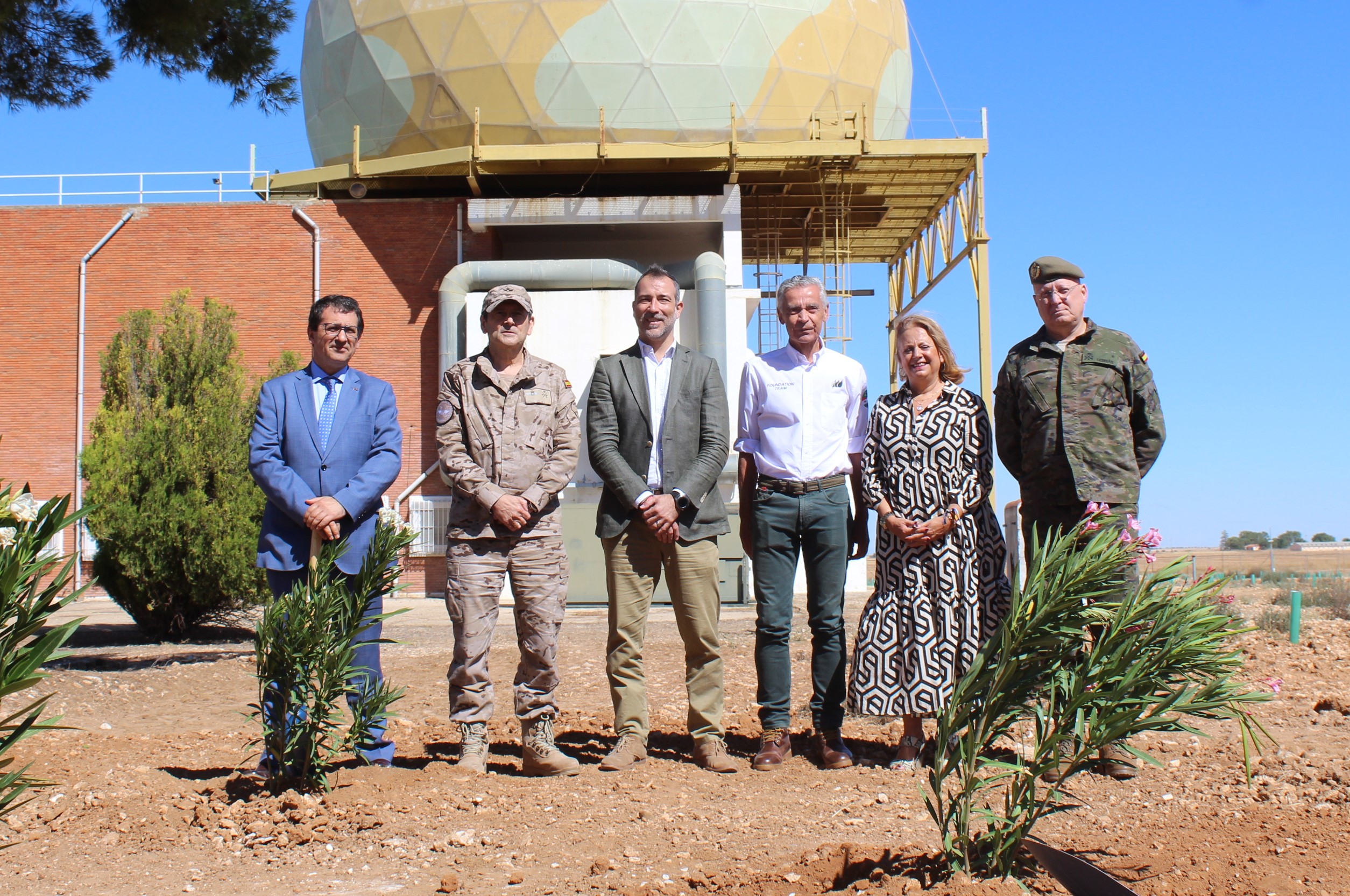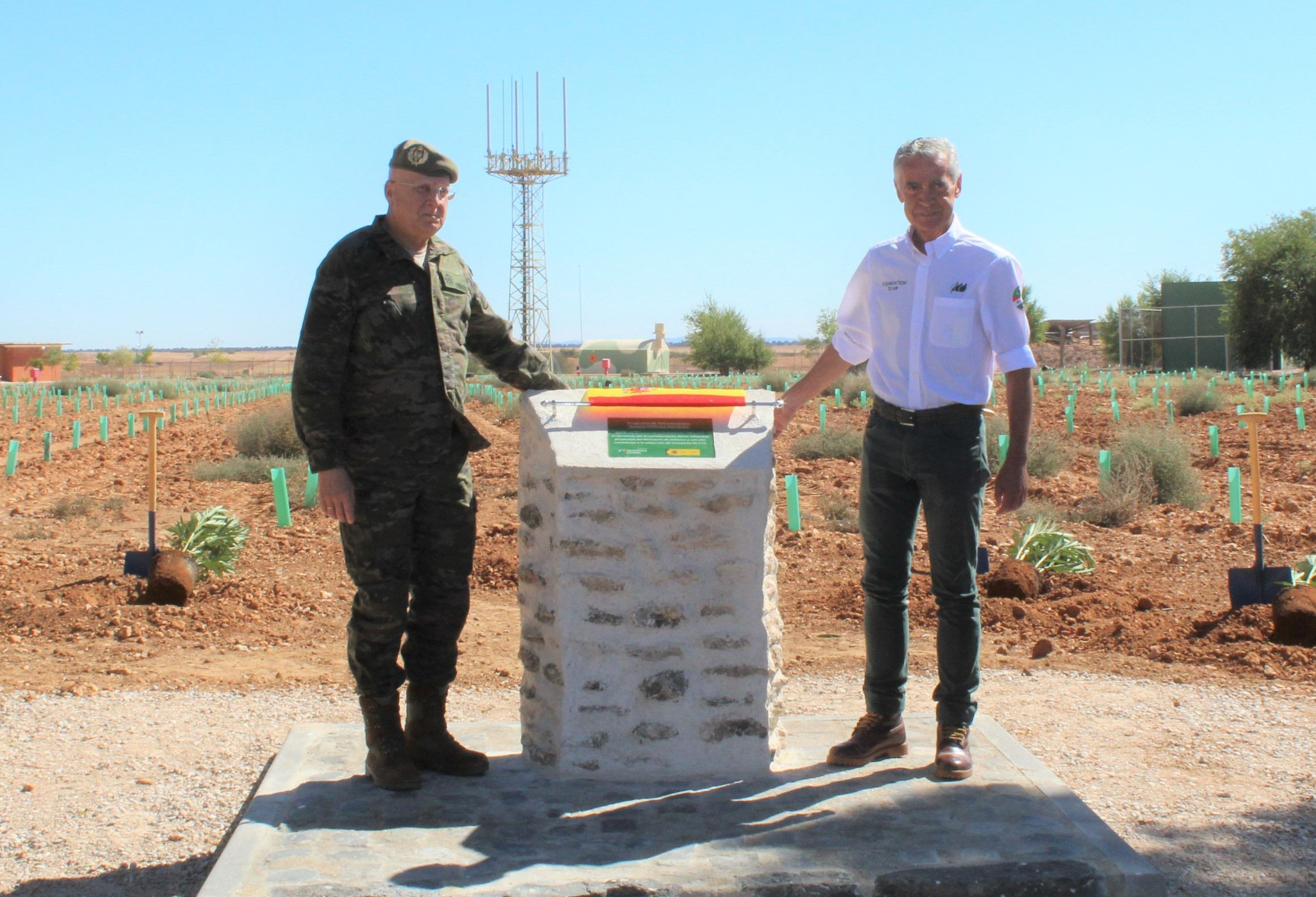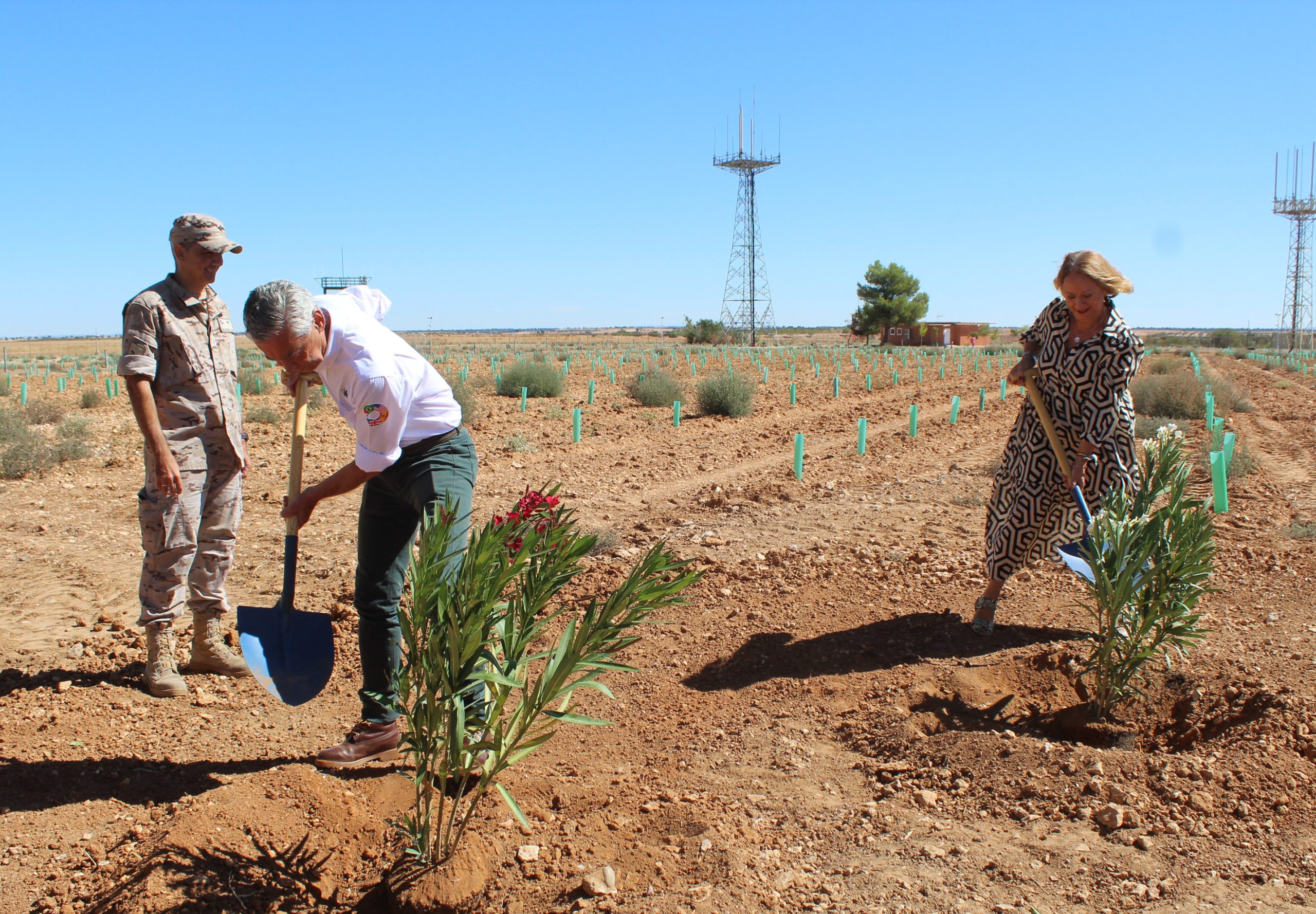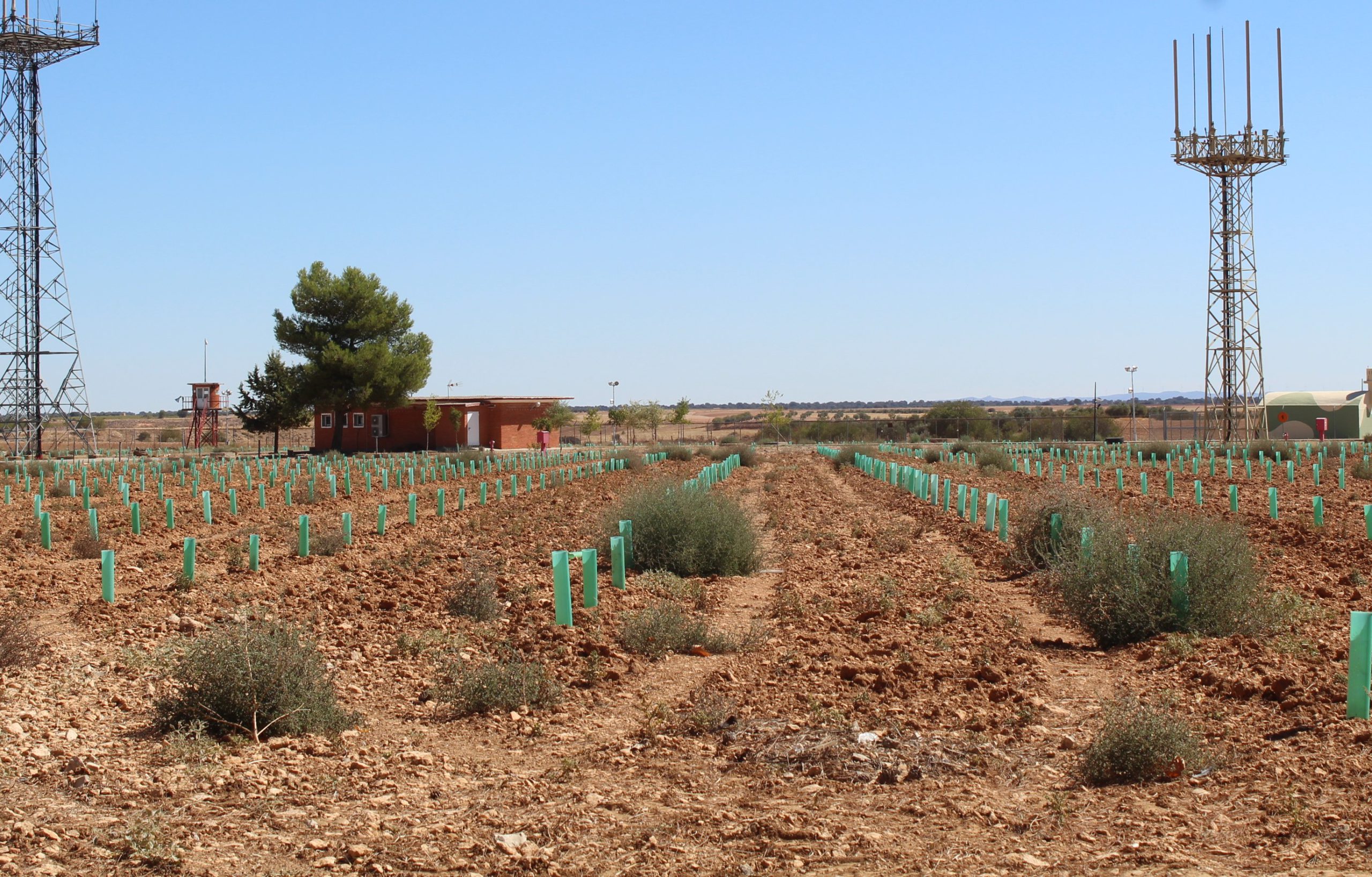- The project is developed with the involvement of professionals from companies in this area in the province of Toledo, both in planting and maintenance work.
- The reforestation is part of the Iberdrola Forest Defence plan for the development of initiatives to improve, protect, and conserve the environment and promote biodiversity at various military installations.
Iberdrola has taken another step forward in its commitment to a sustainable energy and development model that contributes to the fight against biodiversity loss, global warming, and its consequences. Through its Foundation in Spain, the company has inaugurated the reforestation of the Villatobas Air Surveillance Squadron in Toledo. This project is part of the company’s Tree Program, which will promote the planting of 20 million trees during this decade, which will absorb approximately 6 million tons of CO2 in 30 years.
This reforestation is the fourth undertaken by the foundation as part of the Iberdrola Forest Defence plan and has involved the planting of 17,000 native trees over an area of nearly 10 hectares. Of these, 70% are pine trees and the remaining 30% are holm oaks which, as a whole, will prevent the emission of 2,516 tonnes of CO2 into the atmosphere throughout their lives.
Fundación Iberdrola España has hired 8 professionals from local companies for the planting work and has invested more than 20,000 euros to carry out this work. In addition, over the next two years, these local companies will carry out maintenance and irrigation work on the land.
The inauguration ceremony of the reforestation project was attended by the Director General of Infrastructures of the Ministry of Defence, Luis Cebrián Carbonell; the Head of the Aerospace Surveillance and Control System, Fernando Carrillo Cremades; the Deputy Minister for the Environment in Castilla La Mancha, Fernando Marchán Morales; the mayoress of Villatobas, Gema Guerrero García; the provincial delegate of the Junta de Comunidades de Castilla – La Mancha, Javier Úbeda Nieto and the president of the Iberdrola Spain Foundation, Fernando García Sánchez.
Iberdrola Forest Defence
In 2018, Iberdrola signed a collaboration agreement with the Ministry of Defence and the General Directorate of Infrastructures for the development of joint initiatives for the improvement, protection, and conservation of the environment in different areas. One of the areas of action identified was the conservation of the natural environment. To this end, these entities agreed to develop a program for the reforestation of the military maneuver fields owned by this ministry. Iberdrola, through its Foundation, is responsible for carrying out this work on the land selected by the administration, with a commitment to carry out one every year.
Fundación Iberdrola España is developing this initiative with several reforestation projects in army maneuver and firing ranges. Since the signing of the agreement with the Ministry of Defence, the fields of Renedo-Cabezón (Valladolid), Sierra del Retín (Cádiz), the Chinchilla field (Albacete), and, currently, the Villatobas field (Toledo) have been inaugurated. He has also led the reforestation of the Abies Pinsapo species in the Biosphere Reserve and Natural Park of Grazalema.
Thanks to this initiative, we not only improve and promote the conservation of the natural environment but also contribute to the reduction of CO2 emissions.
Commitment to decarbonization and the promotion of biodiversity
Iberdrola began a profound transformation of its business model more than 20 years ago when it opted for a sustainable, safe, competitive energy model that would enable it to tackle the fight against global climate change.
Today, the Iberdrola group is a global benchmark in the fight against climate change -goal 13 of the Sustainable Development Goals (SDGs)- and in line with the group’s strategy and commitments to reduce emissions, the company has continued to add renewable capacity during the first half of 2021. Iberdrola has also just announced a biodiversity plan to be biodiversity positive by 2030 in all its activities.
In the specific case of Spain, 90% of production during the past six months has been emission-free, and globally, 80%, without having produced a single megawatt hour with coal between April and June. In countries such as the United Kingdom, Germany, and Portugal, Iberdrola already generates 100% of its energy with zero emissions.




